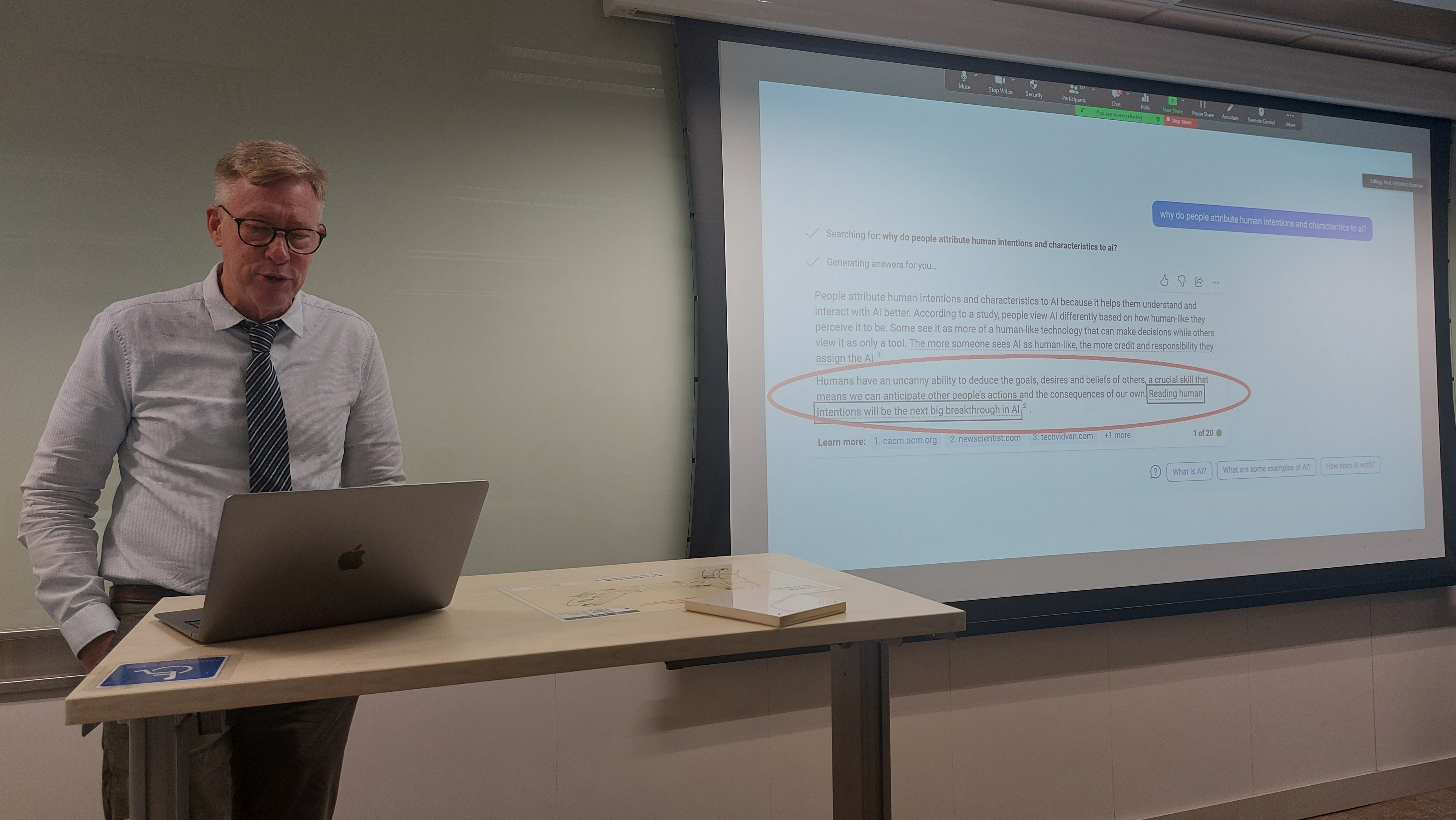AI technology is so advanced nowadays that it has become as intelligent as human, or even more intelligent than human. People rely heavily on different kinds of conversational AI such as Siri, Alexa and Google Assistant to solve problems and facilitate working processes. As AI has been seen almost in all our life circles, the interaction between human and AI is worth exploring to examine the impact of digital media on people’s communication with machine.
Digital Society research cluster under the College of Liberal Arts and Social Sciences (CLASS) gathers scholars from different disciplines to engage in interdisciplinary research, aiming to encourage more new research topics and facilitate knowledge exchange on the relationship between digital technology, people and their societies, and find out solutions to various pressing issues in a digital society.
On 11 October 2023, a Digital Society seminar was held online and in-person at CityU’s Li Dak Sum Yip Yio Chin Academic Building. Prof Rodney JONES, who is the Professor of Sociolinguistics at the University of Reading, is also a former CityU faculty in the Department of English (EN), where he was Head of Department from 2012 to 2014. Professor Jones' main areas of interest are discourse analysis, interactional sociolinguistics, and language and digital media. He is particularly interested in how digital media affect the way people conduct social interactions and manage social identities.
 Photo 1: Prof Rodney Jones asked ChatGPT about the reason of people attributing human intentions and characteristics to AI, and shared the AI-generated answer with the audience.
Photo 1: Prof Rodney Jones asked ChatGPT about the reason of people attributing human intentions and characteristics to AI, and shared the AI-generated answer with the audience.
At the beginning of the seminar, Prof Christoph HAFNER of EN, who is one of the core members of the Digital Society research cluster, warmly welcomed Prof Jones and gave the audience an introduction of the speaker. Prof Jones then presented a number of examples to show how people talk about talking to machines – the meta-pragmatics of human-computer-interaction. It is found that recently people interact with “intelligent” agents, such as chatbots, by engaging in verbal provocations. For instances, it is not uncommon to see people abuse Alexa or try different ways to get Siri mad at them, and then shared their “test results” on social media platforms like TikTok, Instagram or YouTube.
As with non-public performances of provocative human-machine conversations, one of the key functions of these public performances is to “test” what the chatbot can do and establish its “(non)humanness” through attempting to provoke inappropriate, humorous, or biased responses. As metapragmatic artifacts, these performances facilitate collective engagements with algorithmic pragmatics that feed into larger societal imaginaries, not just about artificial intelligence, but also about what it means to produce “appropriate” language and what it means to be human.
 Photo 2: “Replika” is one of the chatbot examples presented in the seminar.
Photo 2: “Replika” is one of the chatbot examples presented in the seminar.
The seminar attracted about 100 participants online and offline. The intriguing topic has inspired the participants to think more about how human uses language models and creates persona and linguistic style for AI. The scripted response of AI often serves other purposes as well, such as aids for the performance of social identities or group affiliation or as tools to promote particular ideologies or political agendas.
Click here to find out more upcoming events of CLASS Digital Society research cluster.
